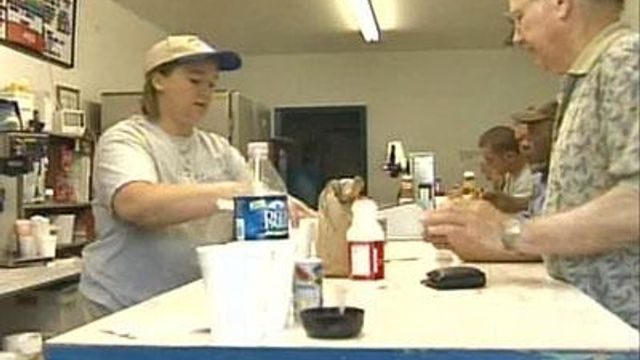State Gains 2 New Towns
North Carolina gained two new towns in recent weeks as the state approved the incorporation of Eastover and Butner.
Posted — UpdatedGov. Mike Easley signed bills granting the status of towns to Eastover, located near Fayetteville, on Monday. Easley signed legislation July 19, making Butner, located 15 miles northwest of Durham, a town.
Leaders and residents in both towns sounded similar reasons for wanting to become official municipalities: to manage growth in era of fast-paced change.
Incorporation provides Eastover with protection against annexation.
“At least it’ll keep us out of the city. I’d rather be part of a small town than be part of the big city of Fayetteville,” said Sharon Moore, owner of the Corner Grill, a popular gathering place in Eastover.
Residents reiterated that independent sentiment.
"Well, one thing, we won't be a part of Fayetteville," said Faye Dorman, a long-time resident of Eastover.
Although Eastover will be Cumberland County's fourth-largest municipality, town leaders said the community will be better able to preserve its country flavor. The 11-square-mile town has about 3,000 residents.
"We're know we're going to growm -- and we do not say that we're not going to grow -- but we want to slow it down and keep our heritage," said Cheryl Hudson, a member of the interim town council.
While Eastover sought incorporation to slow growth, Butner residents pushed for incorporation to facilitate growth.
As North Carolina's last state-run town, Butner gained only about one house a year, in the midst of record growth in other Triangle communities.
“The state owned the land and wouldn’t give it up. This incorporation will allow us to reach out into areas that haven’t been developed,” said John Wimbush, a town council member.
Both communities still face hurdles to clear in the process to become fully-functioning, self-governing towns.
The towns' interim councils cannot make any official decisions until the U.S. Department of Justice signs off on their incorporation. Among other things, federal officials will consider any changes to voting patterns in Cumberland and Granville counties.
The process should take 60 days, and Eastover officials said they expect a decision from the Justice Department by October 1. The town will likely not be able to hold elections until next year.
Easley appointed an interim mayor for Butner and a town council for Eastover that will meet for the remainder of this year.
Before elections, mayors and council members must decide on a budget and tax rate, even look for permanent town halls.
“This barber shop is our headquarters (for Butner), and we get a lot of work done through it,” said Wimbush.
Because it has been run by the state, Butner already has some services in place, including water, sewer, fire and police. Former state employees, including a town manager, will transfer into the town's employ.
As Butner's mayor, Easley appointed Edgar Smoak, head of the Butner Advisory Council, which lead the incorporation effort. That seven-member advisory council will serve as the town's governing body until local elections, scheduled for fall 2009.
In Eastover, the six interim town council members face the complicated task of forming a city government, but said they are determined to get the job done.
"We're gonna push forward and work on things as we can," said Hudson.
The council will a series of public forums in the coming months to help the newborn town with planning, said Hudson.
Dorman said that she looks forward to Eastover residents determining "the way the land looks, cleaning it - cleaning up the community."
Eastover already boasts a community ballpark and a newly-planted crop of houses straight out of suburbia, as well as the Corner Grill, a British Petroleum gas station and IGA grocery store.
Butner grew as a training site for the U.S. Army during World War II. When the land was turned over to North Carolina, the state used it for a psychiatric facility, correctional facility, agricultural research and the North Carolina National Guard.
While the state Department of Health and Human Services lent support to Butner in its bid for independence, Eastover experienced resistance, said Hudson.
Hudson said she was a member of Progress Eastover, a group that formed two years ago to work to make Eastover a town.
Fayetteville initially fought the effort but eventually agreed to it. The Cumberland County Board of Commissioners approved the incorporation in 2006.
Down at the Corner Grill, Moore said incorporation will give locals a sense of ownership in the town where they live.
"I think it will, because we'll all bond," said Moore.
• Credits
Copyright 2024 by Capitol Broadcasting Company. All rights reserved. This material may not be published, broadcast, rewritten or redistributed.





